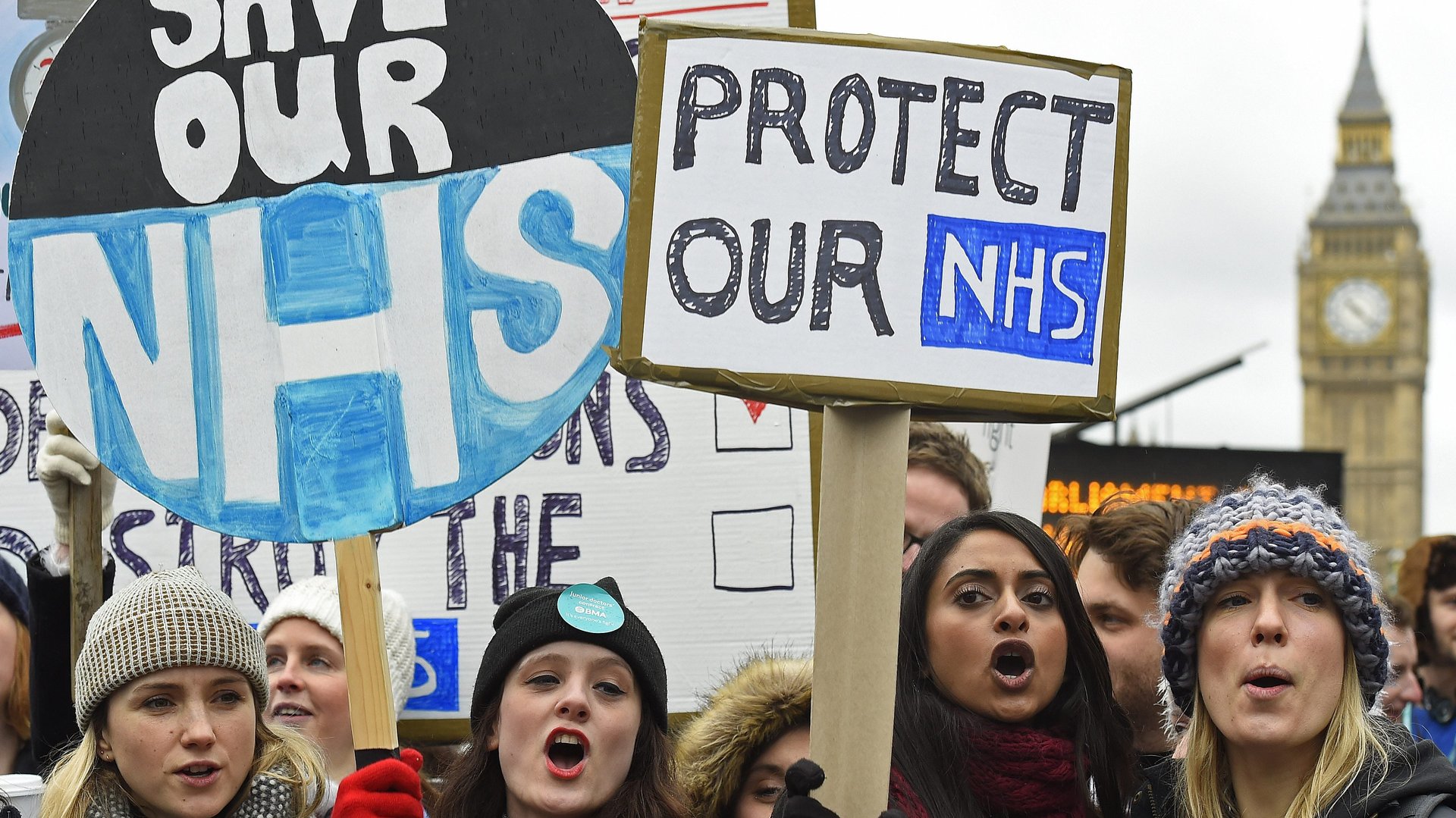The bottom line about the US and UK healthcare systems
The British National Health Service (NHS), which is celebrating its 70th year, is struggling to cope. Ambulances have been filmed queuing outside hospitals, tens of thousands of non-urgent operations in England were deferred and targets to reduce waiting times (paywall) at emergency departments will be missed—again.


The British National Health Service (NHS), which is celebrating its 70th year, is struggling to cope. Ambulances have been filmed queuing outside hospitals, tens of thousands of non-urgent operations in England were deferred and targets to reduce waiting times (paywall) at emergency departments will be missed—again.
Despite this, the NHS remains a treasured public institution in the UK. A poll last year showed that the majority of UK respondents want to pay more tax to better fund the NHS. Even among conservative voters, there’s a call this year to inject more cash into the embattled health service. (Polls have previously shown that the NHS is even more cherished than the British royal family and the military.) In fact, though the NHS has weathered several crises over the past two decades, polling consistently shows that Brits have remained committed to the NHS’ founding principles—a publicly funded national health service that is free at the point of use.
This is what tens of thousands of protestors marched to defend in London Feb. 3. The messaging behind the demonstration appeared to become warped once it crossed the Atlantic. Donald Trump claimed that Britons were marching against universal coverage, and was quickly rebuked by UK politicians.
British prime minister Theresa May said she was “proud of having an NHS that is free at the point of delivery,” whilst Jeremy Hunt, the health secretary, tweeted the same sentiments.
Others were keen to point out the uncomfortable truth missing in this debate: NHS funding would need to “be increased by 50%” for the UK government spending on healthcare to match US levels. According to OECD data, the UK spends $4,192 per capita on healthcare, while the US spends far more than any other country in the world—$9,892. The UK spends the least per person among the biggest economies in the world (the OECD didn’t have data on China).
Since the 1990s, the UK and US have both increased the amount they spend. It’s notable, however, that the gap in spending between them has only gotten wider. And despite spending significantly less, life expectancy in the UK (81.6 years) is still much higher than the US (78.7 years).
While the UK has yet to question the principle of universal coverage, the island of about 66 million is faced with other pressing questions; How much are Brits prepared to pay for the NHS, who will pay it, and what exactly will it buy?